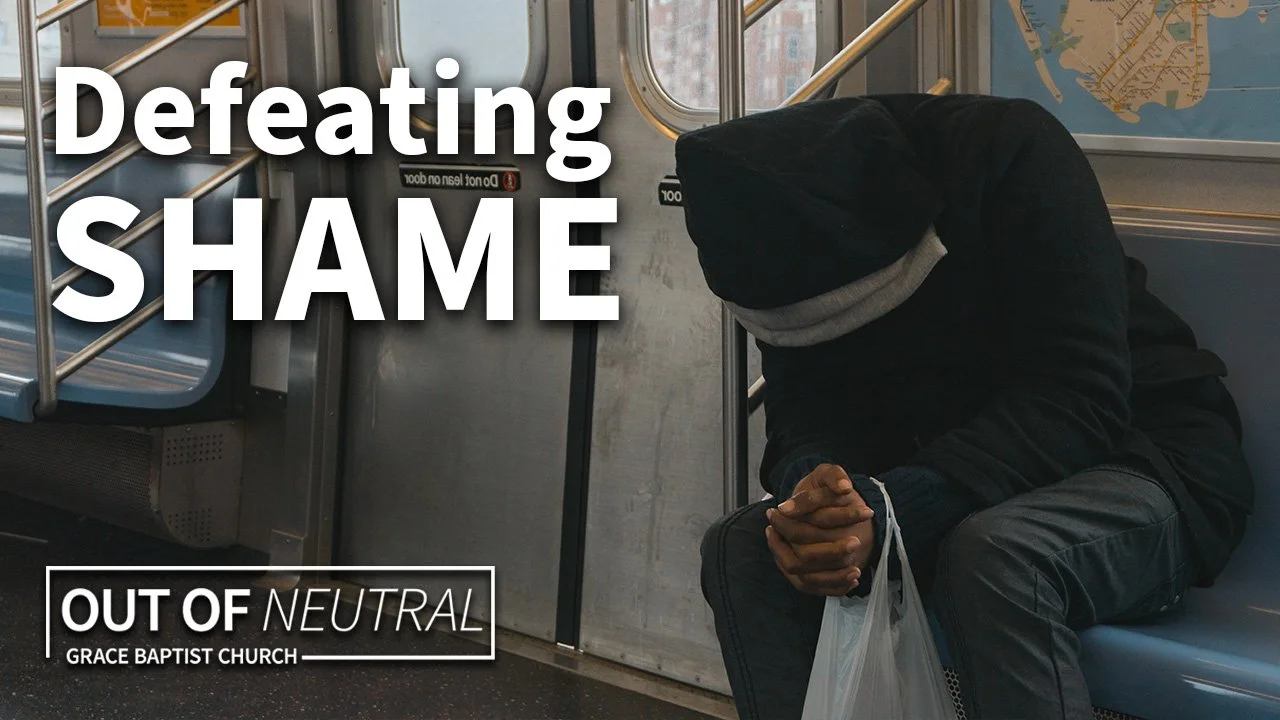Watch
Click on the image above for the video of this article or keep reading below for the text version.
Listen
Read
Maisie Williams has accomplished more in the first 25 years of her life than most of us could hope to in a lifetime. After an 8-year run on Game of Thrones in which she earned two Emmy Award nominations, she has gone on to appear in television and movies and continues to be praised for her acting talents. Knowing that, it’s surprising, perhaps, to hear her admit that she often lies “in bed at night telling myself all the things I hate about myself.” In her case, growing up with constant media attention didn’t help. She talks about the pressure of having “a constant feed in your back pocket of what people think of you.” While her pressures are exceptional, the feelings she struggles with are anything but unusual. What do you do when you find yourself hating the person that you are? How do you deal with feelings of shame that seem to punish and condemn you? The Bible gives a number of solutions.
1. Know that you’re not alone
When the Bible describes the origin of humanity, shame is a prominent part of the story. When they sinned, Adam and Eve felt exposed and instinctively wanted to cover themselves (Genesis 3:7). They hid from God and famously sewed fig leaves as the first clothing. We’ve been dealing with shame ever since. Knowing that other people deal with similar feelings doesn’t make them go away, but it does help you realize that you’re not alone. Your shame might not be the same as someone else’s shame, but everyone experiences shame.
2. Identify where the shame comes from
Adam and Eve’s shame came from their sin, but we can experience shame from so many different things. You can feel shame because you didn’t live up to your parent's expectations. You can feel shame because of something someone said about you. You can feel shame as a result of abuse. If you don’t identify where the shame came from, you’re like a boxer with a blindfold. You can’t protect yourself from something you can’t see. Jesus experienced some of the worst shame that the world can throw at a person. He was condemned as a criminal and publicly flogged, stripped, and left to die in full view of a watching crowd. As painful as that shame must have been, He could see both His innocence and the evil intentions of those who had conspired against Him. In Hebrews 12:2 it says that He “endured the cross, despising the shame.” The word for “despising” here means to disregard or treat as lacking in weight or merit. When you can identify false shame in your life, it makes it easier to disregard it and not let it overwhelm you.
3. Talk about it with someone who cares
Sometimes feelings of shame need to be rejected as false and unjust. Other times, they’re pointing to issues in our lives that we need to confront. If you’re stealing from your company or abusing fellow employees, the shame that you feel is like an alarm, alerting you that what you’re doing is wrong. Until you deal with your behaviour, the alarm will continue to sound. The first step in responding to that kind of shame is admitting to the God who cares for us the wrong that we’ve done. In 1 John 1:9, it says, “If we confess our sins, he is faithful and just to forgive us our sins and to cleanse us from all unrighteousness.” Admitting to God what you’ve done brings relief, but sometimes it’s also important to admit it to others. James 5:16 says, “confess your sins to one another and pray for one another, that you may be healed.” Shame thrives in secrecy and so when we bring it before God and others it frees us from its power.
4. Receive the grace you need
When you’re pulled down by voices telling you that you’re unworthy or inadequate, it’s hard to get free of them. Talking to other people can help, but it’s easy to inwardly discount their words. What do they know, we tell ourselves. In a relationship of trust with God, His words can dismantle the toxic words that we would otherwise believe. Romans 8:1, for example, says, “There is therefore now no condemnation for those who are in Christ Jesus.” Keeping verses like that in front of you, thinking about them throughout the day, committing them to memory, and choosing to believe what they say when competing voices threaten to bring back the shame and self-hatred, can help like nothing else.
If this is new to you and you think it’s something you’d like to explore, I’ve written a free 12-week course called The Unstuck Life that walks you through the essentials of Jesus’ teachings in daily bite-sized messages that you can read or watch by video. To learn more, go to www.gracebc.ca/getunstuck.
May God help you to live in the strength of His love and freedom of His forgiveness as you trust in Him!
In awe of Him,
Paul














